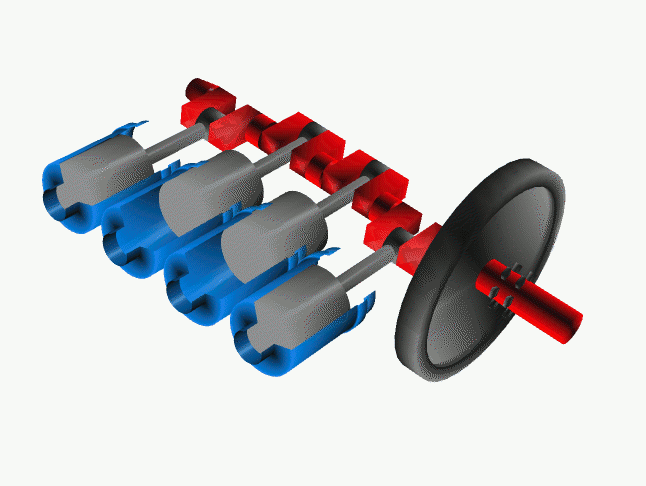Horsepower Calculator
This engine horsepower calculator can answer your question – what is my car's horsepower? With two different calculation methods, based on the weight of a vehicle and elapsed time, or weight and final speed after driving the quarter mile, this engine horsepower estimator gives you precise results in four different units (including horsepower and watts).
In the following article, we explain what horsepower is, how to calculate horsepower, and what is horsepower to watts conversion. More interested users can take a look into horsepower vs. torque comparison as well as check the examples of high-performance cars. Let's fasten your belt, start the engine and drive into the horsepower world!
What is horsepower?
The term horsepower is commonly known, and most of us associate it with cars. Usually, people want to have fast vehicles with powerful engines. But what is horsepower, actually? And what is its direct conversion into car performance?
The Scottish engineer James Watt (1736-1819) invented the unit of horsepower. He is famous for his work on improving the performance of steam engines. Watt worked with ponies that lift coal at a coal mine, prompting him to think about the power generated by those animals. He found that one pony could do 22 000 foot-pounds of work per minute. He raised this value by 50 percent and linked it with horsepower, which equals 33 000 foot-pounds of work in one minute. This unit is arbitrary and has evolved through the years to its conventional form, which usually defines the power of engines (commonly applicable to cars).
Horsepower (HP) is a unit of measurement of power. HP equals the work done by a horse that raises 330 pounds of coal to a height of 100 feet in a minute, or equivalently, 1000 pounds to 33 feet in one minute. In other words, your engine has 1 horsepower if it corresponds to the power of a horse lifting 550 pounds to 1 foot in 1 second. Therefore, horsepower is a unit expressed in the foot-pound-second (fps) system that fulfills the relation 1 HP = 550 foot-pounds per second. Accordingly, for SI units exists two standard definitions – mechanical (imperial) horsepower, which equals 745.7 watts, and the metric horsepower, which equals approximately 735.5 watts.
🙋 Go to Omni's work and power calculator if you want to dig into this stuff a bit more.

How to calculate horsepower – methods description
This horsepower calculator uses two different measurement methods for horsepower estimations – the elapsed time method and the trap-speed method. Both are based on a quarter-mile (402.3 m) ride and should be done with maximal car power immediately after the start. The vehicle weight parameter, used for the calculations, should include the weight of the vehicle itself, driver, passengers, all the car liquids, and anything else of significant weight.
-
Elapsed time method – Uses the vehicle weight and the time elapsed on a quarter of mile race. The estimation formula looks like this:
horsepower = weight / (elapsed_time / 5.825)³ -
Trap-speed method – Applies vehicle weight also and takes into account the car's speed on the quarter-mile finish line (this is not average speed, but the speed at the moment of crossing the end line). The formula is:
horsepower = weight × (speed / 234)³.
Note that in our calculator, you can freely switch between metric and imperial units accordingly to your preferences.
Horsepower to watts conversion
The mechanical engine power is usually expressed in units of mechanical horsepower or watts. So, what is the relation between these two? A power level of 1 HP approximately equals 746 watts (W) or 0.746 kilowatts (kW). And vice-versa, to obtain HP from kilowatts, multiply the power in watts by 0.00134 or power in kilowatts by 1.34.
Horsepower units are commonly used to express mechanical power but very rarely for other forms of energy. To better understand this conversion, take a look at the following example: since 1 horsepower equals 746 watts, putting a horse on a treadmill with the ability to produce 1 HP will continuously generate 746 watts.
Horsepower vs. torque
All the time, while talking about cars, you're messing around with horsepower and torque terms. You can see both in every vehicle specification, but do you understand the practical difference between these two?
Torque is a force applied to something at a distance. In the engine, it is a piston that pushes a crankshaft through the connecting rod and forces it to rotate. Pistons are moving due to the internal combustion of gas in the cylinder (see hydraulic pressure calculator). The more torque an engine produces, the greater its ability to perform work. Torque is expressed in units of pound-feets and newton meters.
🙋 Need a refresher on the notions used above? Check out our torque calculator as well as the nm to ft lbs converter.

Horsepower and torque are just like siblings but separated. They are closely related but don't have much in common. Which is better? Well, both are necessary. Torque is crucial for every engine to operate, but horsepower is the parameter that allows us to distinguish a better engine from a good one.
Horsepower calculator – performing proper measurements
Before using this horsepower calculator, you need to perform your car measurements to have appropriate input data for calculations. Keep in mind that it might be dangerous because of the high speeds involved. You have to take special precautions before and while driving:
-
Do not perform measurements on public roads (streets, highways, etc.). These activities on public roads might endanger a driver, passengers, as well as pedestrians, and anyone else in the vicinity (car crash). Moreover, the achieved speeds might be illegal during the runs because of speed limits on public roads.
-
Use legal places only to perform car run measurements. These might be dedicated race circuits, drag strips, or raceways at airports during special events.
-
Check your car before the measurements. Inspect the technical condition of your vehicle, including tire treads and air pressure, breaks, engine condition, and airbag system.
-
Be sure that drivers and service people know what they are doing in case of proper measurement activities. Lack of significant knowledge may lead to serious life danger.
Note that for both measuring methods, elapsed time and trap speed, you should apply a maximal output of an engine, respectively, from the start.
After performing the measurements, when you have reliable input data it's time to put these into the engine horsepower calculator. Do as following:
-
Choose the method – elapsed time or trap-speed
-
In the case of the first one, enter the
vehicle weightand theelapsed timeon the quarter-mile distance. In the case of the second one, inputvehicle weightas well, and thespeedregistered at the end of the quarter-mile run. -
Results of your car's power are displayed below the calculator. You can see results in four distinct units – mechanical horsepower, metric horsepower, watts, and foot-pounds per second.
2018 Mustang GT horsepower – examples of high-performance cars
On a daily basis, we usually deal with civil cars, mainly intended to help people move from point A to point B. But some other cars are primarily dedicated to providing fun. They are called high-performance cars because of their performance abilities over an average. In this type of vehicle, the power-to-weight ratio is very beneficial – less weight allows for better acceleration.
2018 For Mustang GT is a great example of a high-performance car. With its 460 HP (420 lb-ft of torque), it hits 60 mph in under 4.0 seconds! Mustang GT weighs 3706 lb (1681 kg), which gives a 0.12 power-weight ratio.

Below you can see a few more examples of powerful cars:
- Porsche Carrera – 300 HP, 2900 lb, 0.10 power-weight ratio, 60 mph in 5.0 seconds;
- Lotus Esprit V8 – 350 HP, 3045 lb, 0.12 power-weight ratio, 60 mph in 4.4 seconds;
- Dodge Viper – 450 HP, 3320 lb, 0.14 power-weight ratio, 60 mph in 4.1 seconds; and
- Chevrolet Corvette – 345 HP, 3245 lb, 0.10 power-weight ratio, 60 mph in 4.8 seconds.